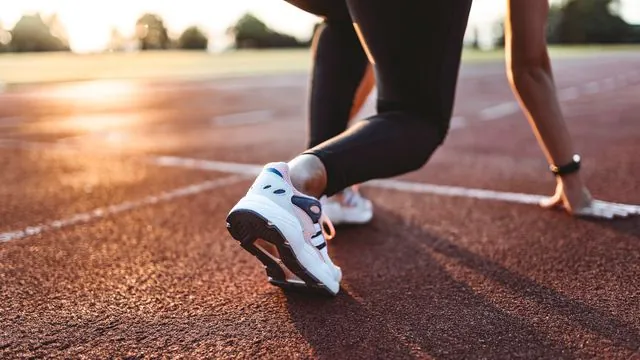
The Shocking Truth About Endurance Athletes' Gut Microbiomes: Less Diversity Than You'd Think!
2025-04-11
Author: Yu
Endurance Athletes: The Paradox of Health
When we think of elite endurance athletes, we often visualize the epitome of health—athletic bodies sculpted by relentless training and top-notch nutrition. However, startling new research reveals that their gut microbiomes might actually be less diverse than those of average folks.
Is Less Diversity a Health Risk?
Traditionally, a diverse gut microbiome is equated with good health. So why do some of the fittest people on Earth host microbiomes that seemingly contradict this norm? As research into the gut microbiome explodes, linking it to everything from mood stability to metabolic issues, scientists are uncovering a complex relationship between exercise and our microbial friends.
A Deep Dive into Athlete Microbiomes
To untangle this complexity, Dr. Frédéric Derbré, a leading researcher at Rennes 2 University, has conducted a groundbreaking study published in *Cell Reports*. The findings challenge preconceived notions of what a "healthy" microbiome should look like. By carefully controlling dietary influences, the team isolated the direct impact of exercise on gut microbiota.
What the Study Revealed
The results? Endurance athletes, particularly elite cyclists, exhibited a gut microbiome that was not only less diverse but also had lower bacterial density and functionality. Surprisingly, this reduced diversity didn't hinder the production of short-chain fatty acids—metabolites crucial for energy metabolism. This leads researchers to propose a fascinating hypothesis: a specialized microbiota designed to boost energy production.
Could Microbes Be Performance Game-Changers?
Notably, some bacterial species seemed to stand out as potential indicators of athletic performance. For instance, *Prevotella copri* was abundant in athletes' guts, but its role remains unclear, as it didn't successfully engraft in experimental mice. This suggests there may be other, less abundant microbes that play significant roles.
The Role of Fecal Microbiota Transplantation (FMT)
In their study, the team used fecal microbiota transplantation (FMT) to gauge the metabolic impact of these elite athlete-associated microbes. While the mice showed improved insulin sensitivity—a vital metabolic advantage—the transplantation alone didn’t enhance mice performance. This indicates that physiological stress or exercise might be required to unlock the full potential of these beneficial microbes.
Shifting Views on 'Healthy' Microbiomes
These findings could redefine what we traditionally consider a "healthy" microbiome. Although a specialized gut microbiome may be beneficial for energy metabolism in athletes, it could also pose risks. Reduced diversity might heighten vulnerability, paving the way for harmful bacteria.
The Challenge of Finding Comparable Subjects
To isolate the effects of exercise from diet in their study, Dr. Derbré and his team faced a significant challenge: identifying non-athletic individuals with similar dietary habits. Out of over 100 volunteers, only 20 met these stringent criteria.


 Brasil (PT)
Brasil (PT)
 Canada (EN)
Canada (EN)
 Chile (ES)
Chile (ES)
 Česko (CS)
Česko (CS)
 대한민국 (KO)
대한민국 (KO)
 España (ES)
España (ES)
 France (FR)
France (FR)
 Hong Kong (EN)
Hong Kong (EN)
 Italia (IT)
Italia (IT)
 日本 (JA)
日本 (JA)
 Magyarország (HU)
Magyarország (HU)
 Norge (NO)
Norge (NO)
 Polska (PL)
Polska (PL)
 Schweiz (DE)
Schweiz (DE)
 Singapore (EN)
Singapore (EN)
 Sverige (SV)
Sverige (SV)
 Suomi (FI)
Suomi (FI)
 Türkiye (TR)
Türkiye (TR)
 الإمارات العربية المتحدة (AR)
الإمارات العربية المتحدة (AR)